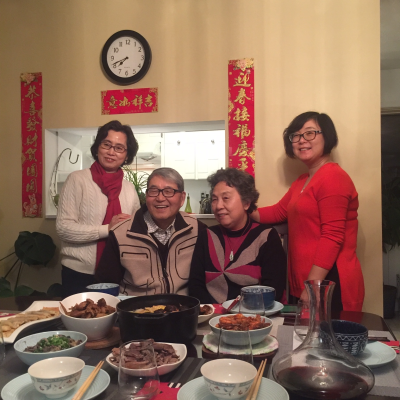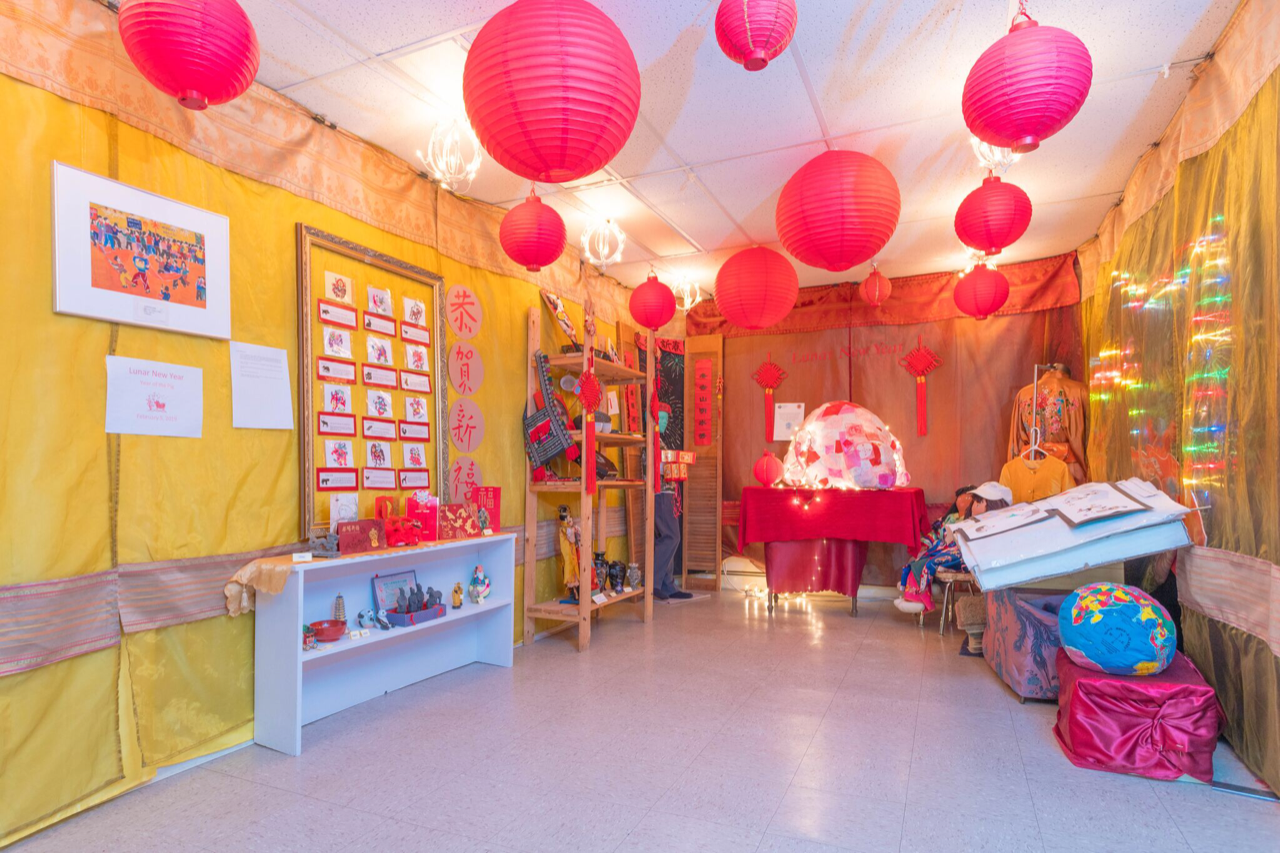| Membership | Price (+HST) |
|---|---|
| Single | $85/year |
| Single Plus | $120/year |
| Family | $130/year |
| Family Plus | $175/year |
| Contributing | $300/year |
| Supporting | $600/year |
| Sustaining | $1,000/year |
| Benefactor's Circle | $2,500/year |
| Director's Circle | $5,000/year |
| President's Circle | $10,000/year |
Festivals of Lights: Lunar New Year
Around the world, people celebrate festivals with specific traditions and customs. When people come to Canada, depending on the food and plants available, they adapt and use what’s accessible for traditions. One important element of these festivals is the use of forms of light.
Through the ages, people have gathered together around fire and light in all its forms. Fire offers warmth, heat to cook with, and protection. Light in nature is used for all kinds of purposes. Moonlight and the stars help mark time and aid in navigation while the sun is an essential part of life and growth. Humans seek out light as it provides comfort, the ability to see and the energy to grow food and plants. Light is celebrated as a symbol of hope because in times of darkness, people wish and pray for light and its reassurance. Therefore, it makes sense that many holidays and observances are celebrated with lights as part of their tradition. People in our communities and neighbourhoods around the world celebrate with the sparkle and bang of fireworks, the comfort of a single candle’s flame, the crackle of flames from an open fire, a lit lantern or the twinkle of lights from decorated boughs of an evergreen or even a palm tree!
Light weaves a common thread to unite people from north to south, east to west in the celebration of many festivals including: Indigenous observances, Diwali, Hanukkah, Christmas, Kwanzaa, Lunar New Year, Ramadan/Eid-ul-fitr. Journey with our volunteers and friends from the Children’s International Learning Centre (CILC) as we learn of celebrations and observances by seeing a snapshot of cultural nuances through their eyes with the RBG at Home blog.
Lunar New Year
By: Selena Gong (she/her), Volunteer at the Children’s International Learning Centre
The Lunar New Year is a yearly celebration that celebrates the ending of winter and welcomes spring. Usually, it occurs sometime in January or February, depending on the Lunar Calendar. The Lunar New Year is celebrated by many different Asian cultures, such as Seollal in Korea, Tết Nguyên Đán in Vietnam and Spring Festival or Chinese New Year in China.
There are 12 Chinese zodiac animals that repeat in a cycle. Each year is represented by one of the animals. People born in the year will have traits of the zodiac animals. The upcoming year (2022) will be the Year of the Tiger; many people believe those born in the year of the tiger are thought to be competitive, self-confident, and brave.
The most memorable Lunar New Year moment I have from growing up in China is the fireworks lighting up the entire sky. Fireworks are important because they scare away the evil spirits and celebrate the new year. Similar to Christmas in western countries, everyone tries to go home and take time with their family during this time. A week or two will usually be taken off from work, and people will travel from all over the country to be with their family.
In my family, the entire extended family will gather at one of the grandparents’ houses, cook a large feast together, set up decorations, play card games or mahjong (tile-based game), or watch a yearly new year’s performance on the television called “Spring Festival Gala”. Sometimes, if people are too tired to cook for the entire family, you can rent out a large room in a restaurant. They will have a set course for a New Year’s feast. The holidays are usually a very busy time for restaurants.


For the kids, everyone receives a red pocket filled with money, usually spending money so they can buy a gift for themselves. Nowadays, with the invention of e-wallets and e-payments, many choose to send money via an e-transfer instead of in the traditional red packet. Interestingly, these e-transfers are always called ‘red packets’, even if they are not sent during the new years time. I also remember my grandma talking about how it is traditional to give tangerine trees during the new year, as the little oranges are one of the only trees that produce fruit during the winter. Bearing fruit during the harsh winter months is a sign of resiliency and brings fortune in the new year.
In the few days following the New Year’s Eve, we visit extended family and friends, as well as go to a monastery or temple to pray for good luck in the upcoming year. We burn incense and place it in a big cauldron in the centre of the temple and think about our wishes for the next year.
Compared to China, the celebrations in Canada are not as extensive. We do not usually take a week or two off during the Lunar New Year celebrations. However, there are many celebratory activities during this time, such as watching lion dances, visiting friends, and also going to a temple. It is a time spent with family, about the joy of being together and celebrating the passing of another year.


The Children’s International Learning Centre (CILC) is a non-profit organization that was established with the vision of contributing to a world of care and respect for all people and our environment. We endeavour to do this by promoting respect for diversity and awareness of our world community through guided discovery and interactive, artistic programmes, which will soon be delivered online.
More from the RBG Blog
Check out RBG’s blog for announcements, articles, and more from Canada’s largest botanical garden.
Want to be sure you hear first? Sign up for our weekly e-newsletter to hear about upcoming events, weekend activities, articles, and more!












